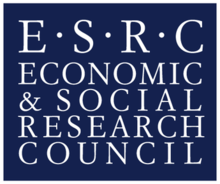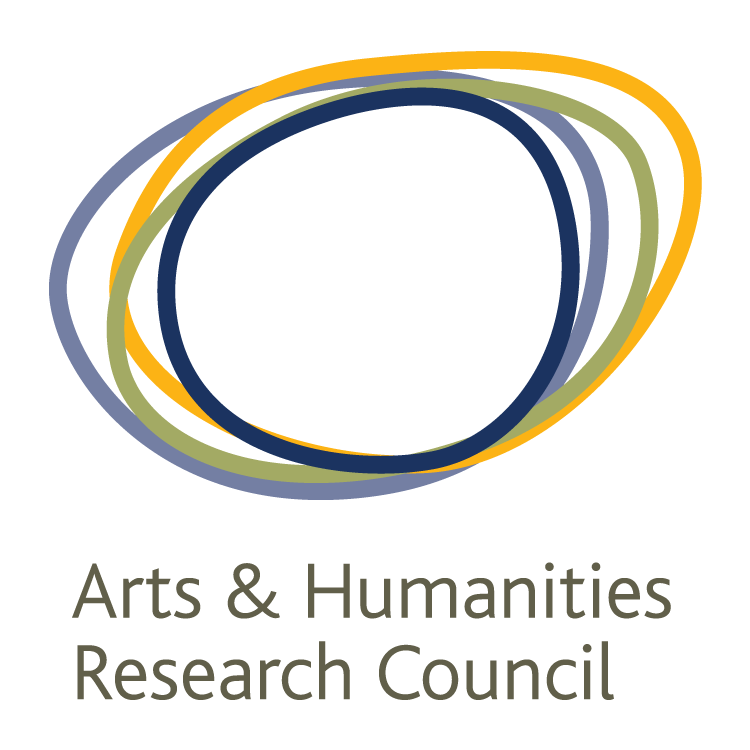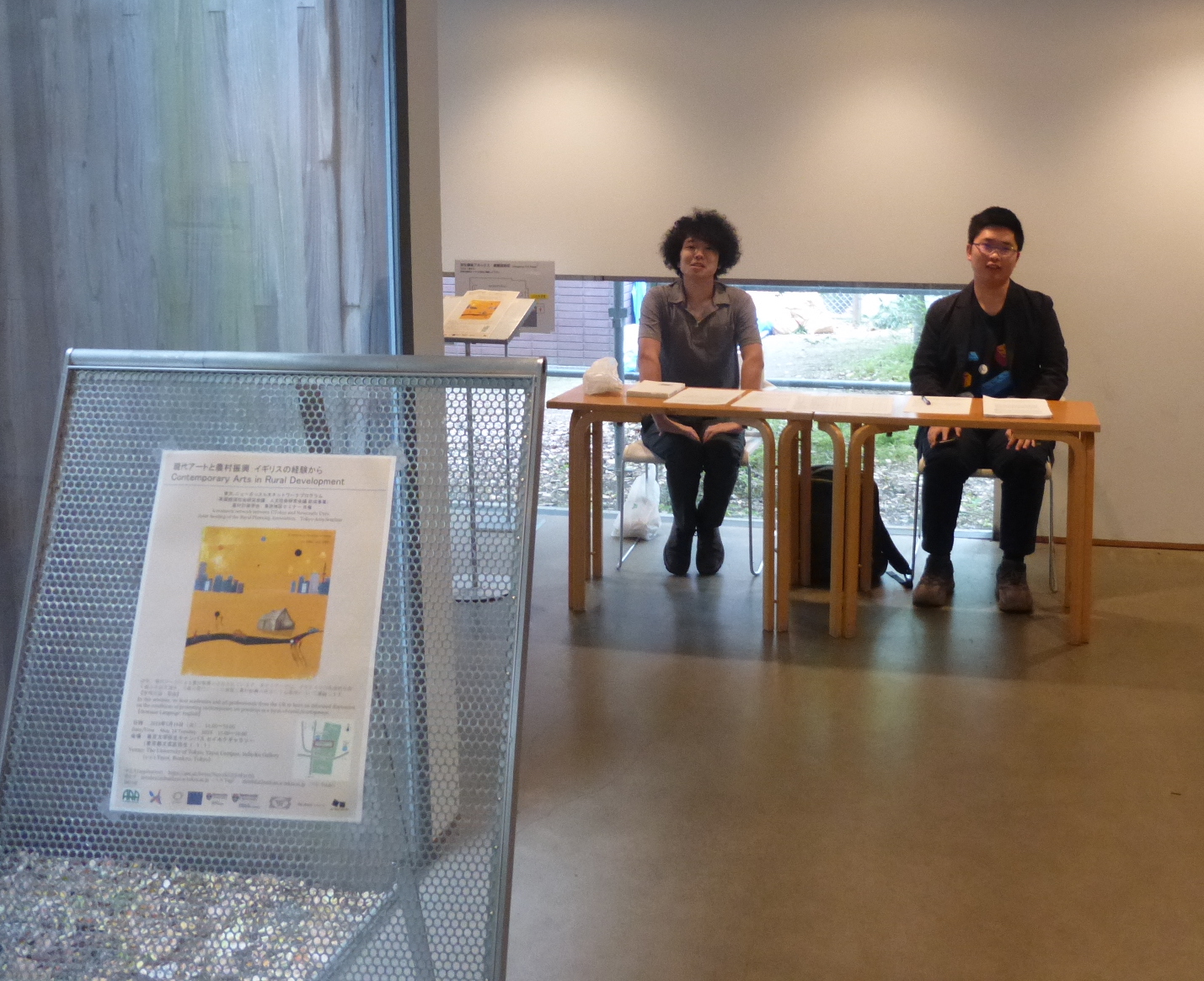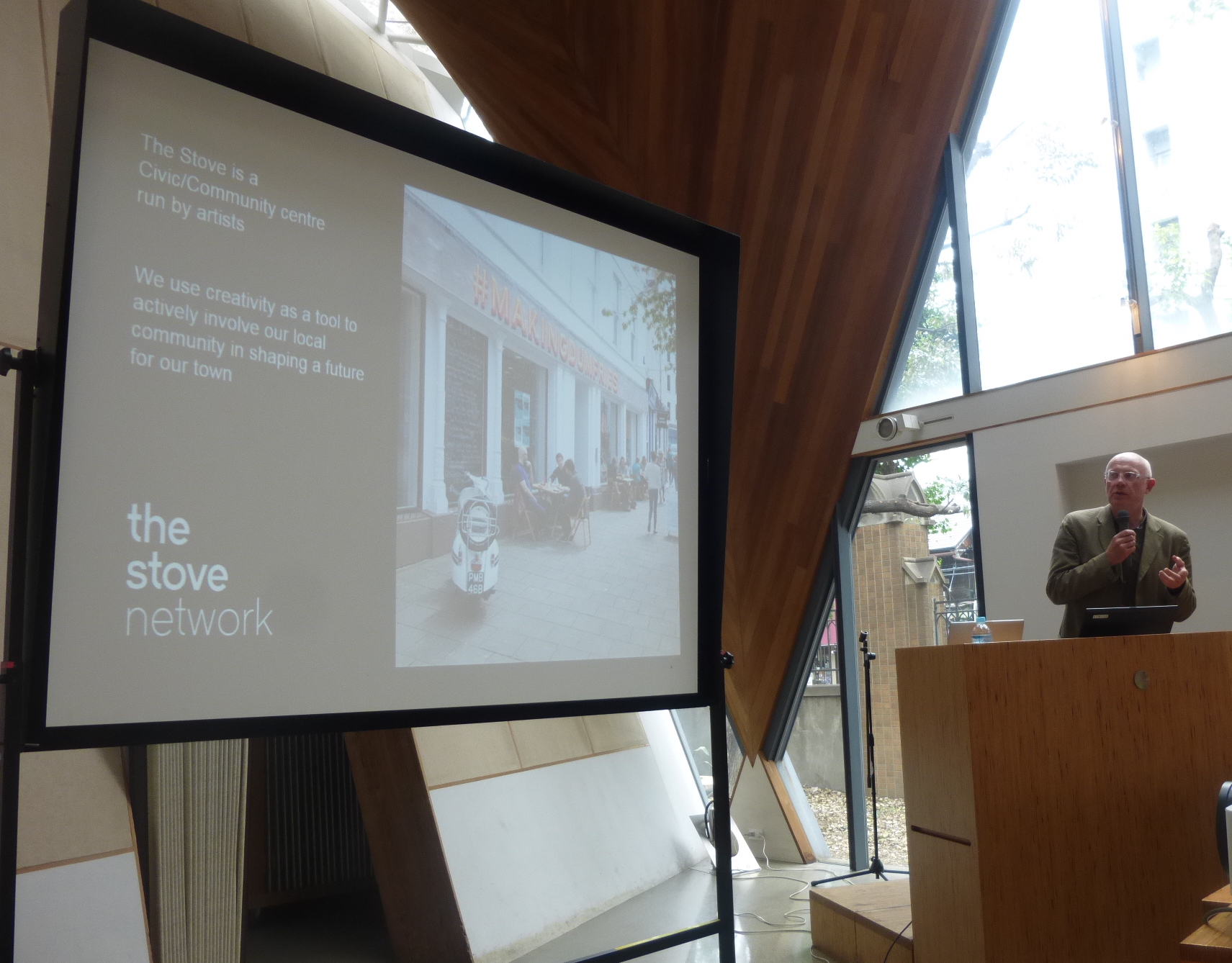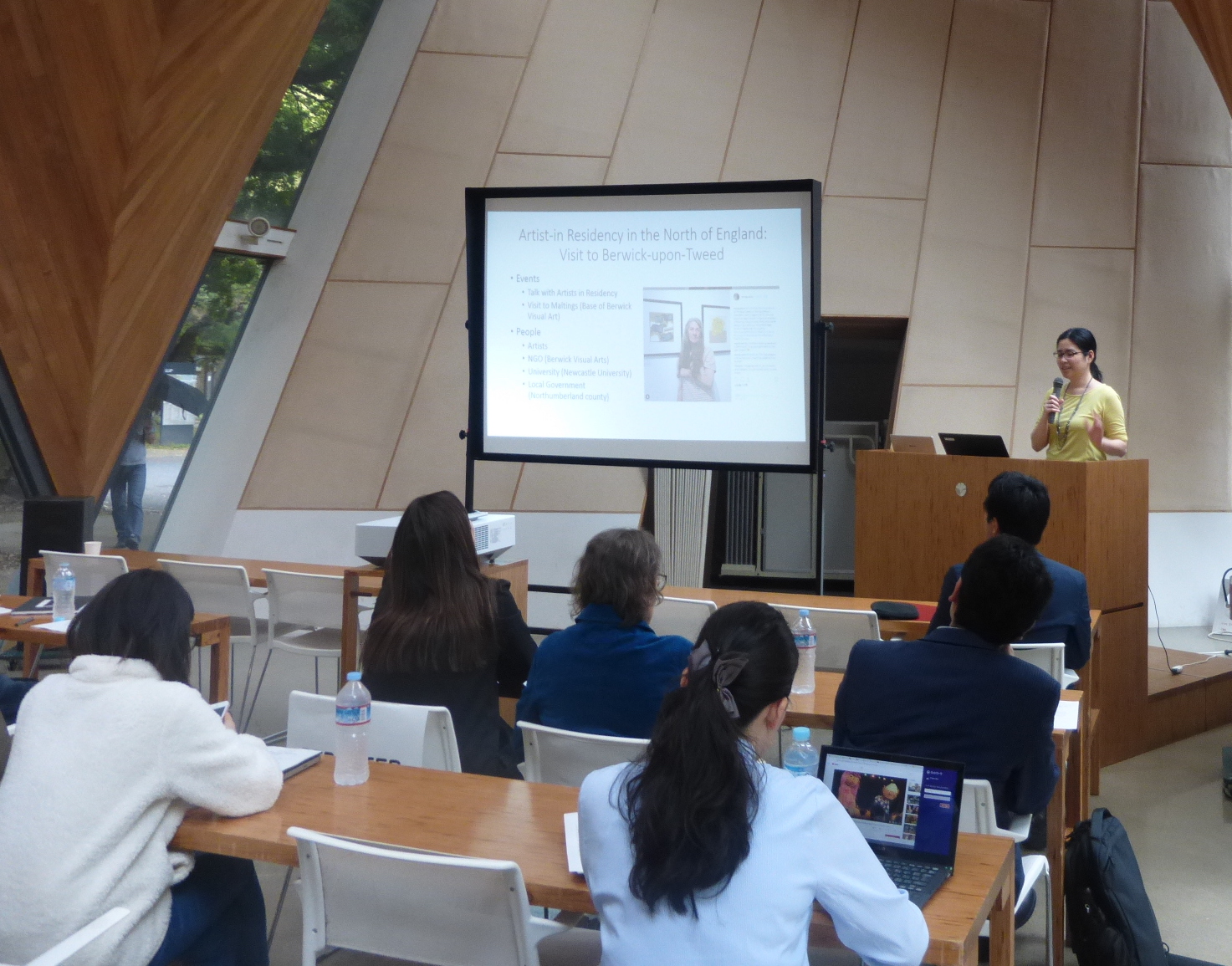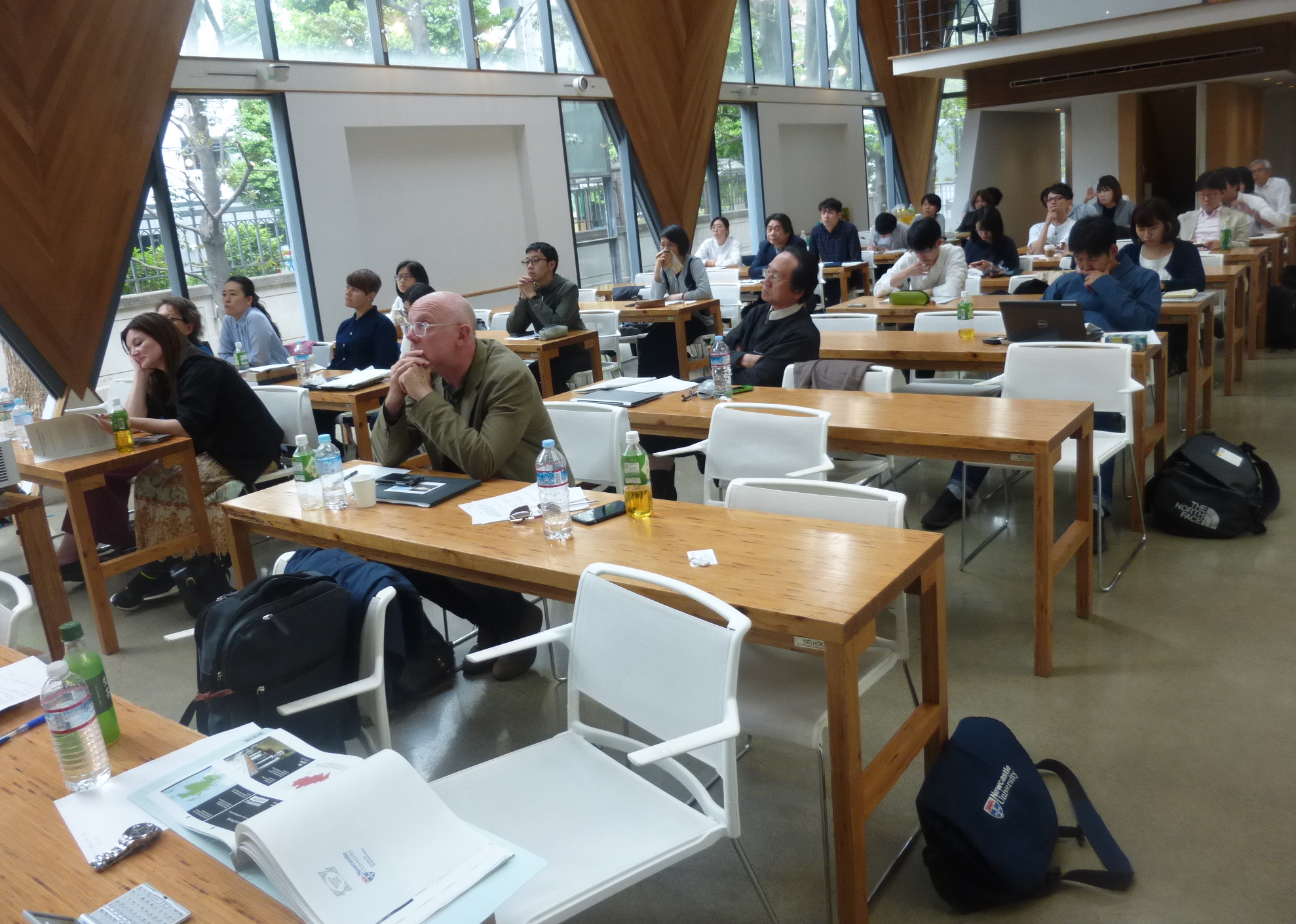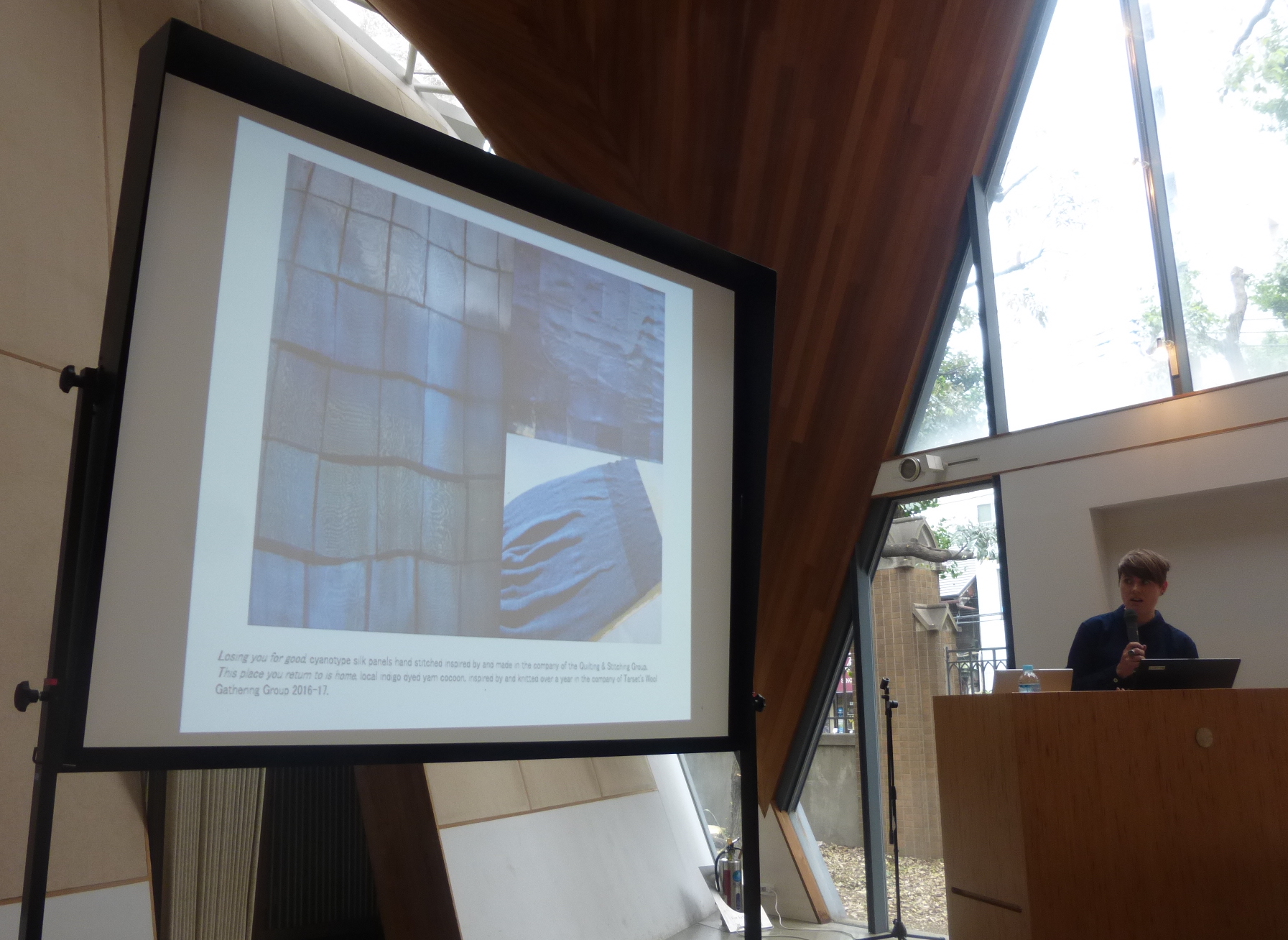News
Seminar on the role of arts in rural development held at the University of Tokyo

Just about recovered from our jet lag, we co-hosted with our Japanese colleagues a seminar on art and rural development for the Rural Planning Association of Japan. A good number of delegates attended and it was an honour and a pleasure to be presenting in the intimate and elegant conference space at University of Tokyo, designed by architects taiji kawano. We were welcomed by Associate Professor Hironori Yagi who set the scene for our discussions with a brief history of our collaboration and the aims of our project.
Fresh in from her morning flight from the UK, artist Lucy May Schofield eloquently reminded us that ‘The visitor sees things with a clear eye’, referencing an old Icelandic saying she heard while on a recent artist residency. We are fortunate in this project to have Lucy’s involvement, and to draw on her already extensive knowledge and experience of the Japan art scene, and as our ever-present pair of ‘fresh eyes’. Indeed our seminar exemplified the value of interdisciplinary perspectives and multiple practices: artistic, academic, policy making and planning, nuanced by and within cultural differences across continents. Associate Professor Nanami Toishi from the University of Tokyo argued coherently that the juxtaposition of rural development and fine art allows us to explore, and challenge well established dichotomies, such as urban/rural, insider/outsider, high/low population density, old/young, rich/poor. Our multiple perspectives similarly challenge established hierarchies of knowledge, a point well made by Dr Julie Crawshaw, from the School of Fine Art at Northumbria University. Drawing on the work of Professor Patsy Heeley, she advocated the value of experiential and practical ways of knowing. Artistic knowledge and practices have much to offer our understanding of rural places, and provide opportunities to rural communities via engaged arts practices to see their world through fresh eyes, and others’ too. From Julie, and from Assistant Professor Sakura Yahata of Tokyo University we learned about the histories of artists’ residencies in both the UK and Japan as ways of embedding artists in rural communities, although the scale and nature of these residencies differs between our two countries, again offering opportunity for exchange and learning. Of particular relevance to our planning audience was the case study of rural housing presented by Dr Menelaos Gkartzios of Newcastle University’s Centre for Rural Economy. Newcastle University and Berwick Visual Arts co-sponsor an artist in residence, a collaboration unique in UK higher education. During his residency in 2016, Sander Van Raemdonck developed a walking art practice as a method of community consultation around a contentious proposal for new housing, and as a way of enabling planning professionals to envisage different possibilities for the site. Demonstrating perhaps that we should think about art for planning, and not just planning for art.
The theme of art for rural development continued with Matt Baker’s case study of The Stove Network in Dumfries, Scotland. Here embedded artists across diverse artforms such as visual arts and music are breathing new life into a struggling town facing many of the problems familiar to areas of rural Japan and the UK - an ageing population, lack of opportunities particularly for young people, and a failing infrastructure – points emphasised by Dr Fran Rowe in her presentation on rural UK. And while art cannot solve these problems alone, it can present an alternative model of regeneration that can boost local economies, attracts visitors, and more subtly, enable communities to rediscover lost hope and pride. The Stove Network is embarked on a fascinating exploration of what is possible through arts-led regeneration in a rural context, that is also drawing attention from policy makers in the Scottish government as a potential approach for other rural areas.
An excellent day was rounded off by a lively discussion with our invited audience, and we returned to our hotel tired, but eager to hit the road and see for ourselves, contemporary art in rural settings.
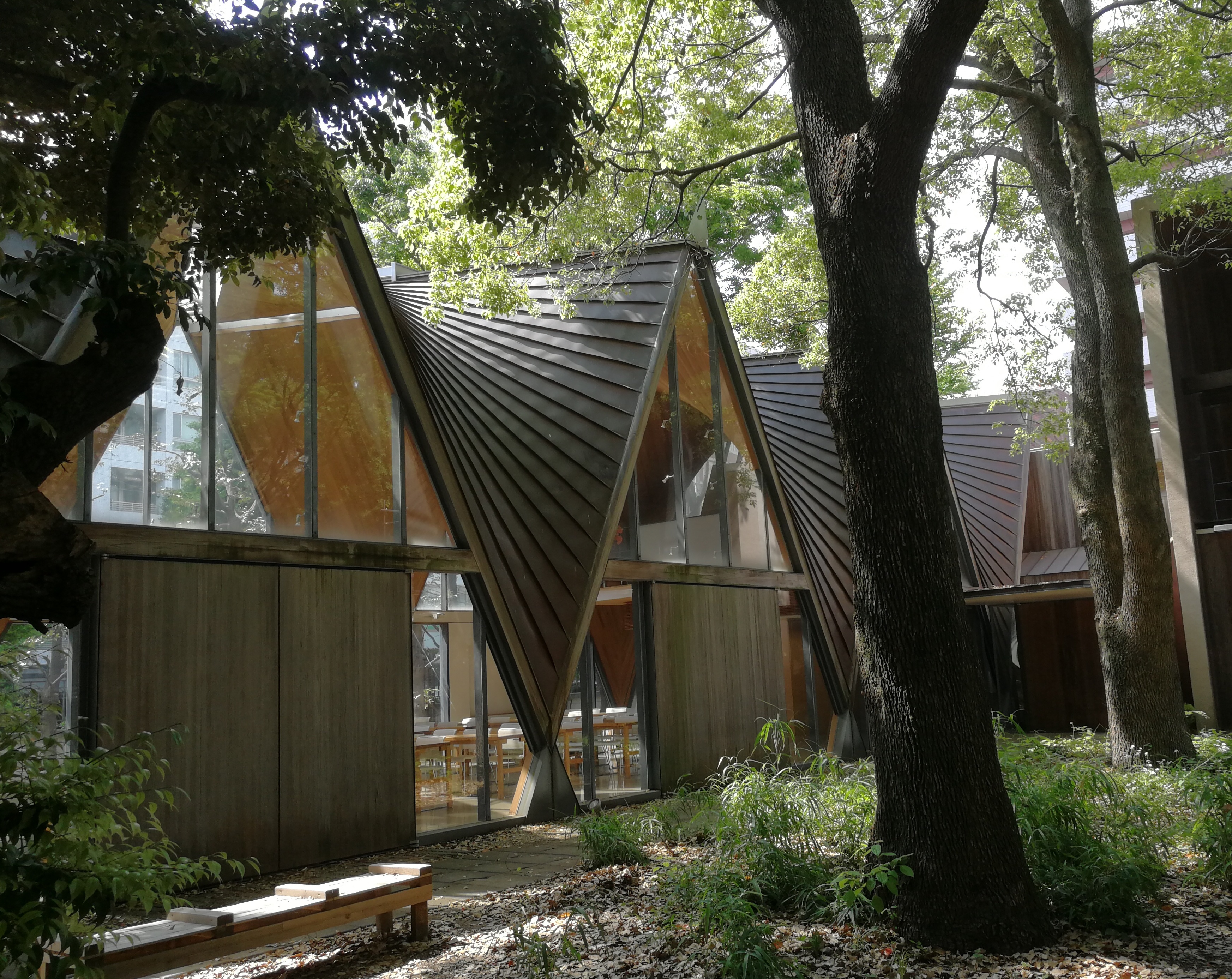
Last modified: Sun, 02 Jun 2019 20:13:06 BST
